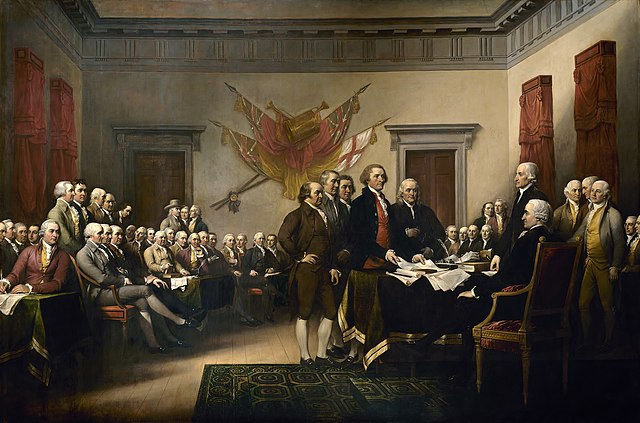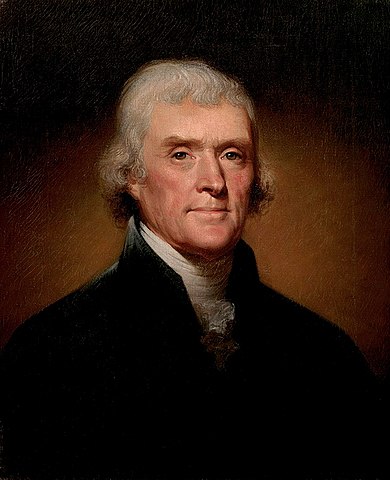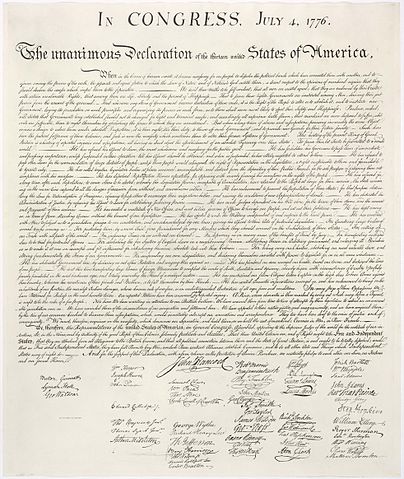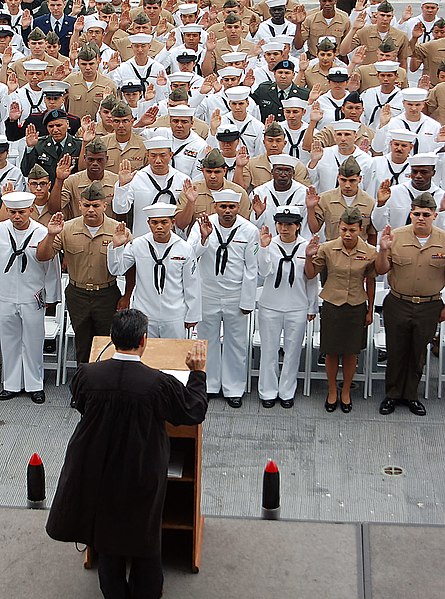In November 1972, I arrived in Chile to commence my two-year stint as a missionary for the Church of Jesus Christ of Latter-day Saints. My first posting was to Linares, a small town of around 38,000 people about 200 miles south of Santiago.
To say that I was not in Kansas anymore would be an understatement. At least the Munchkins spoke English. I, on the other hand, struggled mightily with the local Spanish dialect, Castellano, notwithstanding the intensive language training I had received during the previous eight weeks. While my mouth was grappling with a foreign tongue, my stomach was trying to come to grips with an unfamiliar cuisine. And sometimes it lost its grip.

View of Linares from our bedroom window 
Baptismal font in the Linares chapel with handsome missionary
Mormon missionaries were objects of curiosity in most of the country, but not so much because of our faith. It was our nationality that was the most frequent topic of conversation. At the time, Chile’s president was an avowed Marxist with close ties to Fidel Castro. His supporters, suspecting we were CIA spies working to undermine the government, periodically harassed us with both insults and rocks. (On the bright side, this sharpened our reflexes and expanded our vocabulary.)
Some Chileans viewed us as conduits for obtaining scarce consumer goods, such as high-quality blue jeans. Others were enamored with Hollywood, especially Westerns, though they were always a bit crestfallen when we told them the wild, wild west had become rather tame. And a few, with both a hint of envy and admiration, marveled at the technological prowess of the United States, most notably its Apollo Space Program. Best of all, Chileans are among the kindest, most generous people I have encountered in all my travels, and I loved every minute I spent in their country.
Reflecting on the challenges I faced adjusting to a markedly different culture has made me wonder about foreigners who seek permanent refuge in the United States. Many come to our door because their country of birth no longer wants them, is unsafe, or is failing economically. While I returned home when my religious service came to an end, circumstances sometimes compel them to forsake their homeland—along with family and friends—forever.
The poet and writer Roya Hakakian, a Jewish refugee who emigrated from Iran to the U.S. after Ayatollah Khomeini returned to power, has authored an insightful account of the challenges she and other immigrants face as they struggle to assimilate in a new country.[1] Her book serves as both a guidebook for new arrivals and, for the native born, a discerning assessment of America’s virtues, flaws and eccentricities.
One of the biggest cultural shocks for new arrivals, she says, is often shopping. Many come from countries where haggling with merchants over price and quantity is a national pastime. But in the United States, bargaining is not an option. Prices are fixed. Some are furious when they discover dickering is not allowed, but then one of their compatriots will say, “Yes, but you can return what you buy for a full refund if you’re not satisfied.”
“Say, what?”
This revelation is often met with disbelief, so newcomers will insist on putting it to the test, buying things just to see if they can return them a few days later. When it turns out to be true, they conclude that this is one of the surest signs of America’s greatness. Here is proof “that anything is possible because a one-time decision is not destiny.”[2]
The leisure choices of Americans also befuddle immigrants. They never considered “running” a form recreation; rather, it was something you did when you were trying to elude a gang or government agents. And jumping off a bridge while attached to a long cord was typically done in your country by people who wanted to end their lives, not enjoy them. But perhaps most surprising of all is when you are out in the woods and happen upon a family squeezed into a tent while a parent tries to start a campfire. Your offer of financial assistance is declined, though you struggle to comprehend the reason given: “We’re doing this for fun!”[3]
The way people in the U.S. respond to adversity strikes many newcomers as revelatory. Americans, for example, typically mourn their dead by celebrating their lives. And the period of mourning is short. “Move on,” is a favorite American catchphrase.[4]
Personal and national tragedies are similarly met with a spirit of quiet determination. Lose a loved one to cancer? Start a grassroots charity to fund medical research. Missing a leg because of an injury suffered while serving your country? Once you recover, you can train to run a marathon.
Instead of commemorating the September 11 attacks with a national day of mourning, Americans elected to create a National Day of Service. Helping complete strangers, Ms. Hakakian notes, is simply what Americans do. And their generosity reaches beyond the United States as families dispatch willing teenagers to impoverished foreign lands to help build homes and schools. What bonds them to those within their reach is not a common religion or skin color; rather it “is the sameness of the cherished American ground you now share with them.”[5]
Passing a civics and citizenship exam is an essential part of the assimilation process. Citizen wannabes prepare by studying the American Creed, the sacred texts, beliefs and customs upon which the United States was founded, starting with the Declaration of Independence.

We hold these truths to be self-evident, that all men are created equal, that they are endowed by their Creator with certain unalienable Rights….
“Whoa, stop right there,” says Ms. Hakakian. “Who says these truths are obvious and these rights are inviolable? That wasn’t true where I came from!”[6] We native born blithely assume that the rights and privileges we enjoy are intrinsic to our very existence and not open to debate. We feel this way because we have no other point of reference. For many immigrants, however, this is not true. And it also wasn’t true when Thomas Jefferson penned these words almost 250 years ago.

“Thomas Jefferson,” by Rembrandt Peale (1901) 
Jefferson engaged in a rhetorical sleight of hand, committing a logical fallacy by assuming the truth of an assertion before it had been proven. Indeed, the received wisdom of his day was that individuals are not created equal, that each person is born to their appointed station in life and should not expect to change it. For the colonists and the millions of immigrants who followed in their footsteps, Jefferson’s words were liberating.
It is lamentable that Jefferson and his colleagues did not extend these unalienable rights to women and people of all races. But if they had, Ms. Hakakian notes, they would not be known as the Founding Fathers. Instead, we would call them the Founding Gods.[7]
Those who criticize the framers of our government for not having been as liberal minded as our enlightened generation professes to be, fail to ask an obvious question: “What if the Founders had included in the Declaration of Independence a statement that men of all races, along with women, were created equal?” The answer is clear: the American Revolution would have been stillborn. Slavery existed throughout the thirteen colonies,[8] and there was no grassroots support for giving women a say in government. But this should not blind us to what Jefferson and his collaborators did accomplish.
Where there once had been a large, impenetrable wall, the Founding Fathers carved a door. Because their understanding—and the understanding of the society they represented—of “all men created equal” was blinkered by their cultural and racial prejudices, they slammed it shut behind them. But their words inspired others to dream of finding a way to re-open that door. This is the “Patriot dream that sees beyond the years,” what motivated future champions of equal rights, such as Martin Luther King, Jr., whose iconic “I Have a Dream” sermon delivered at the foot of the Lincoln Memorial in August 1963, continues to inspire.
Ms. Hakakian pulls no punches when it comes to slavery and America’s mistreatment of African Americans. Discriminating against different racial and ethnic groups, however, is not peculiar to the United States. While it is patently wrong, it is also endemic to the human race. So she advises her fellow immigrants to consider it a hazing ritual, one virtually all newcomers have been forced to endure since the country’s inception.[9]
Each new group that arrived in the United States has tried to shut the door behind them. The English tried to keep out the French and the Germans. The Italians didn’t want the Irish and they both disliked the Jews and African Americans. Today, Latin Americans are shunned the same way the Chinese were in the 19th century.
Ms. Hakakian encourages new arrivals to become acquainted with this history and to take the long view. While you should refuse to sit in the back of the bus and always insist upon equal treatment, self-pity will be your undoing, if you succumb to it. Remember: for virtually all of the 20th century, no country, save the United States, allowed the foreign born to naturalize and become full citizens.[10]
Assimilation is required for those who wish to become fully integrated in American society. While she tells those who aspire to full citizenship that they do not have to give up their identity but simply add to it,[11] she approvingly quotes President Woodrow Wilson’s declaration: “A man who thinks of himself as belonging to a particular national group in America has not become an American.”[12]
For those who ride the citizenship carousel and successfully grab the brass ring—a Naturalization Certificate—Ms. Hakakian cautions them not to view it as a deed with which they can stake a claim. “Citizenship does not give you ownership of this land. It only gives you the honor of her stewardship, the price of upholding her principles, and of keeping her fire burning to warm all the generations to come.”[13] This is what makes the United States of America, she proclaims, “the Promised Land.”

[1] Roya Hakakian, A Beginners Guide to America, (New York: Alfred A. Knopf, 2021).
[2] Ibid, pp. 122-123.
[3] Ibid, p. 72-73.
[4] Ibid, p. 68.
[5] Ibid, p. 159.
[6] Ibid, p. 91.
[7] Ibid.
[8] Richard Brookhiser, Give Me Liberty: A History of America’s Exceptional Ideal, (New York: Basic Books, 2019), p. 91.
[9] Beginners Guide, p. 187.
[10] Ibid, pp. 191-195.
[11] Ibid, p. 168.
[12] Ibid, p. 84.
[13] P. 213.

Remarkably well put and fantastically cited. We neither do ourselves, nor the founding fathers, any favors by overlooking their errors or in minimizing the many leaping truths they got right. To overlook either surely puts us at risk of an even more painful repetition of our shared past.
Well said, Daniel.
Perhaps the greatest mistake we make is believing we are more virtuous and wise than our forefathers. I doubt any of us would like a future generation to shine a harsh spotlight on our mistakes while ignoring the things we did well. On a personal level, I am comforted knowing that no future generation will ever tear down a statue built in my honor since there won’t be one!
Thanks for sharing. Hakakian’s book is actually on my hold list already, sounds like a good one.
I like the comment about each group being selfish and wanting to close the door after they were in the USA. We can’t stay in a leadership role with out opening our door to those seeking a better like. Isn’t that how all of us/our ancestors got here. The land of opportunity withers when all doors are closed.
Jeff, I’m confident you’ll enjoy her book. Though she sometimes overstates her position, she writes well and brings to the table a good sense of humor, along with a keen eye for nuance. And she is more articulate than most people for whom English is their first language
Len, I couldn’t agree more. For the first time in decades the birth rate in the U.S. has dropped below the replacement level. If we are to avoid the demographic crisis that will engulf Japan, China and Russia as their populations age and their birth rates decline, we need more immigrants. Historically, that has always been our ace in the hole.